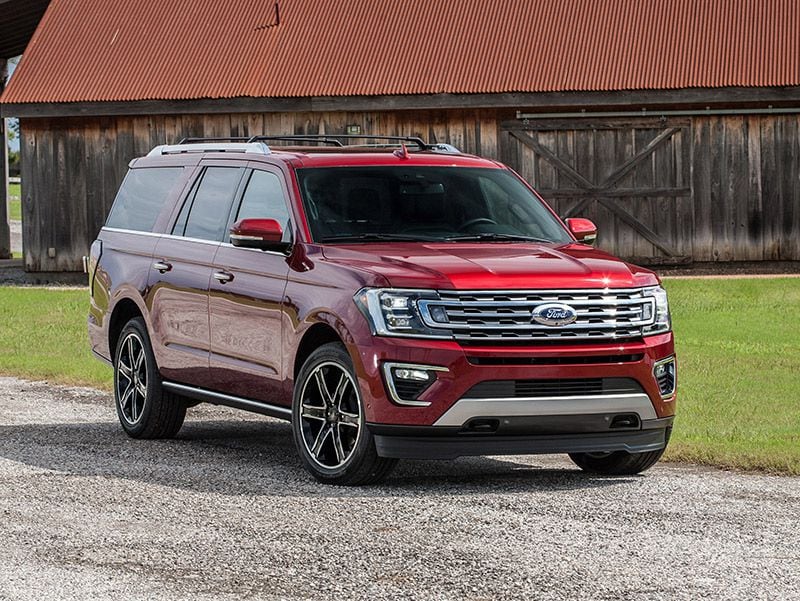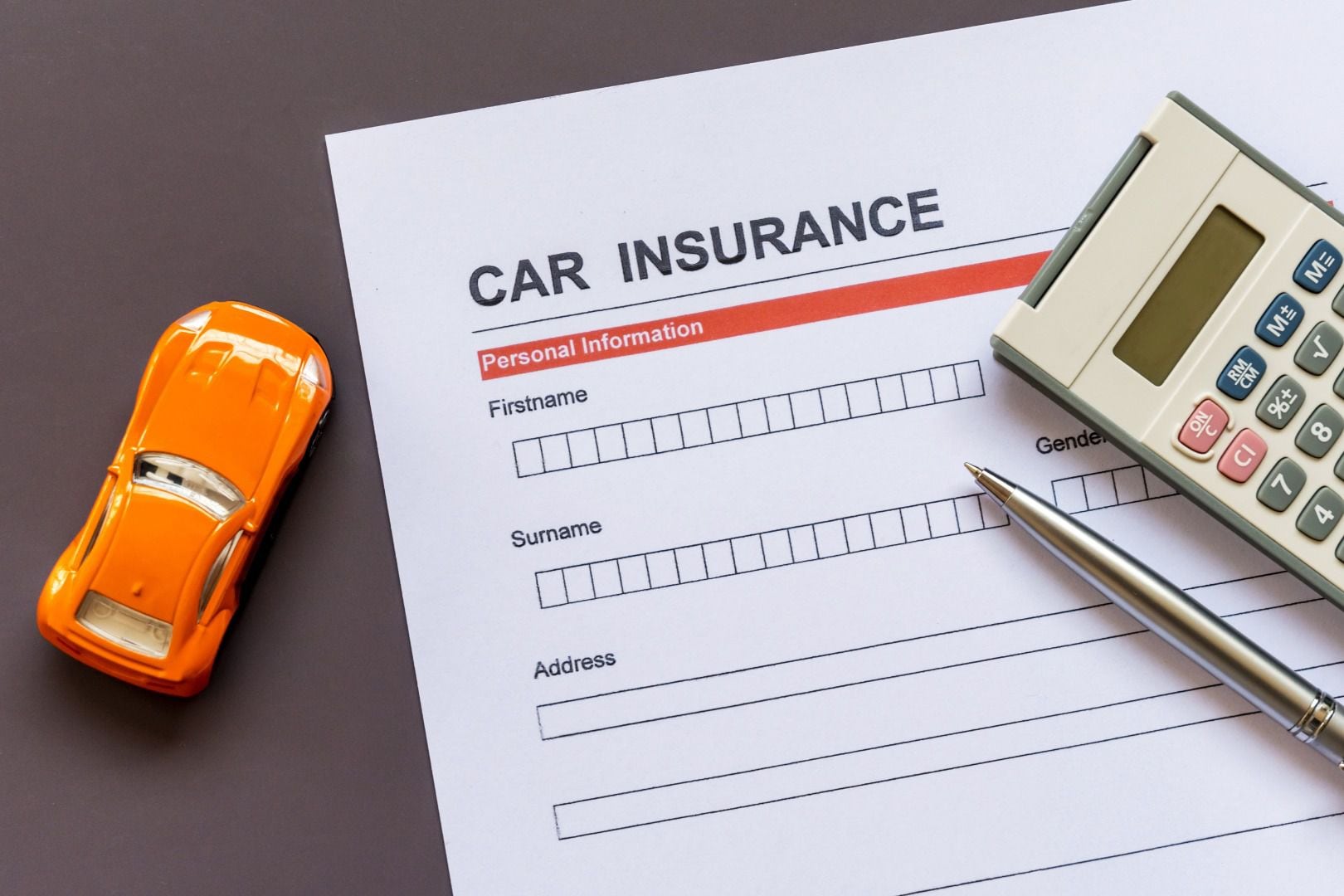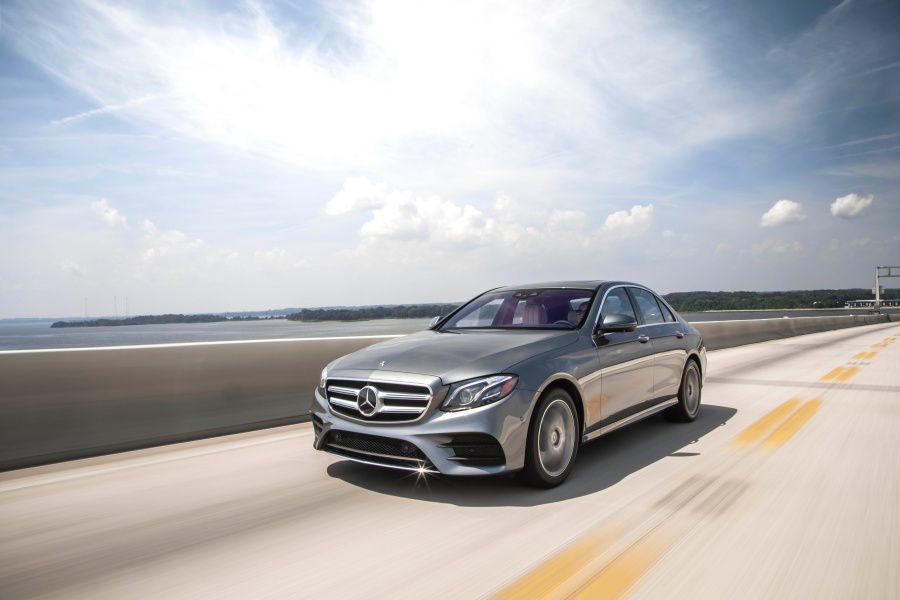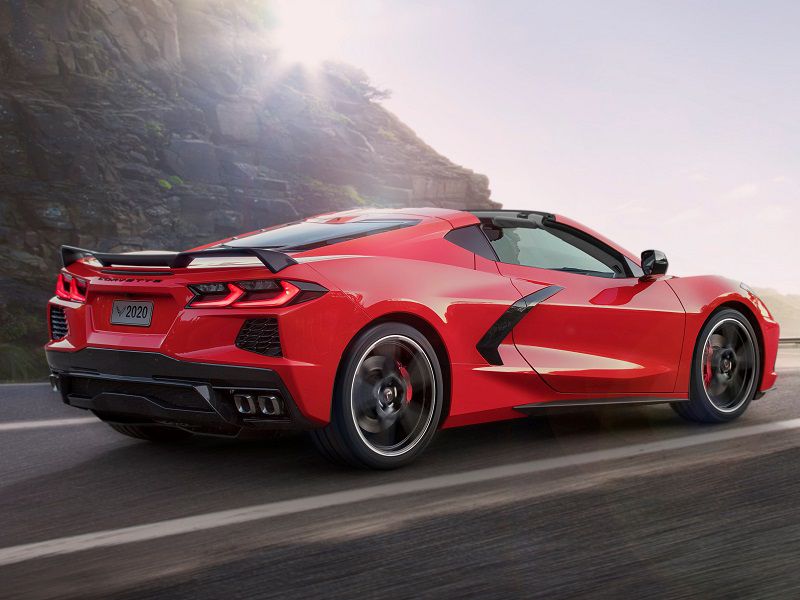Recent Articles
Popular Makes
Body Types
Should Car Insurance Influence The Car You Buy?

2019 Ford Expedition Texas Edition front three quarter ・ Photo by Ford
One of the realities of owning or leasing a car is the necessity to purchase car insurance. Virtually all of our nation’s 50 states require you to have car insurance to license your vehicle and drive it. It’s one of those things that is both good for you and good for society. It’s good for you because having insurance can stave off financial disaster. And it’s good for society because it protects the general public from the costs associated with automobile accidents that might otherwise fall on the state. Since car insurance is, like death and taxes, inevitable, it might prompt you to wonder if car insurance should influence the car you buy.
If you have all the money in the world and thus you don’t care about the cost of your car insurance, you can answer no to that. Simply buy the car you want, and when you get the quote for the insurance send it off to your financial people and have them write a check or transfer the funds. If, on the other hand, you are like most of us and have a budget to contend with, you might well let the cost of car insurance influence the car you buy.
Consider Car Insurance Costs Carefully
The big reason to consider the cost of insuring a car before you buy is is the fact that the choice of the car you buy will have an effect — sometimes a very dramatic effect — on how much you pay to insure it. The difference can be hundreds and sometimes thousands of dollars depending upon how extravagant the car and how much coverage you want and need.
“New car-buyers are paying higher initial transaction prices now, more than at any other time in history, and this is making them very price-conscious and sensitive about the entire cost of ownership experience,” said Chong Gao, director of product management R&D for Mercury Insurance. “Going beyond researching the purchase price, auto insurance research should be factored into your purchase decision because it could amount to savings of hundreds of dollars each year. Auto insurance research can reveal a lot about a car, as it is correlated with vehicle safety, the propensity of being stolen, and the likelihood of claims getting litigated.”

Photo by Suchada Toemkraisri-Adobe Stock
What Is Car Insurance?
We all know we need to have at least some level of car insurance. But why? What does car insurance do for us? The answer isn’t as simple as it seems. When questioned, a lot of people will tell you they have insurance to protect their car. But in reality, people have car insurance to protect themselves and their loved ones. What are they being protected from? Financial harm and possibly catastrophic financial loss that could literally cost them their homes and their livelihood.
This is not overstating the case. If you are involved in an accident that is determined to be your fault and others are killed or injured, you could be held liable for the costs and “damages” associated with those deaths and injuries. Depending on the extent of the injuries and the medical care required, those costs could run into the millions, more than enough to wipe out even well-to-do people. Beyond the liability involved in driving a car, even the loss of a vehicle whose actual value could be $30,000, $50,000, or even $100,000 represents a big financial blow to the typical family. So people buy insurance to protect themselves from that potential disaster. They pay an insurance company money so the insurance company will assume all or most of the risk should a bad event like a car crash occur.

Photo by Adobe Stock
Factors That Influence Car Insurance Costs
Car insurance might seem like a simple concept. But car insurance is actually quite complicated. It is designed to mitigate various risks, and there are several variables involved in assessing each of those risks. Your “premiums” — the money you pay your insurance company — can vary based on things like your age, your driving history, and where you live. It might even be influenced by things like your credit history and whether you own your own home. Many of these items are things you can’t do much about. But there are some factors that you can do a whole lot about — the make, model, and year of your car. These three factors are key in determining your vehicle’s value. And your vehicle’s value is a major factor in setting your insurance rates.
The reason the value of your car is so critical to this process should be obvious. Typically you insure your car against total loss and against damage that could be done to it in an accident you cause or by an uninsured or underinsured third-party. In a total loss situation, replacing a $100,000 car will cost more than replacing a $20,000 car. That isn’t hard to grasp.

Parts and Repairs
But complete replacement is not the only factor. expensive cars are built of expensive parts that are expensive to repair or replace. Additionally, expensive cars typically have more equipment and accessories than less expensive vehicles. So if they are involved in an accident, repairing and replacing that equipment adds to the cost. Just as it is less expensive to replace a Chevrolet than it is to replace a Mercedes-Benz, it is also less expensive to fix a Chevrolet than a Mercedes-Benz.
A similar rule applies to performance and sports cars. Typically those vehicle types are more expensive than garden-variety vehicles. Higher-horsepower engines and performance tires and suspension components are more costly than the engines, tires, and suspension parts of a typical vehicle. So fixing or replacing them is more expensive. Insurance premiums are higher to reflect that.

Photo by Mercedes-Benz
Performance Cars More Risky
Not only is the typical performance car more expensive to buy and repair than the average car, but it is also more likely to be involved in an accident. Does this mean performance cars are not engineered as well as typical cars? Does it suggest they are not safe? No, instead it is a reflection of the behavior of their drivers. Performance-car drivers are more likely to drive more aggressively and take more chances than the typical driver. Certainly, there are exceptions to this generalization, but insurance rates are not set by exceptions; they are set by the collective experience of the auto insurance company about the people it insures.
If you want to keep your insurance costs low, don’t purchase a performance car. In fact, don’t purchase an expensive luxury car, either. The extremely frugal could make the case that you shouldn’t buy any new car. Instead, find a lower-cost used car that will serve your needs. We’re not saying you have to go to that extreme, but you should be aware that your choice of vehicle makes a big difference in your future car insurance costs.

Photo by Chevrolet
Do Some Research
All this implies that you should research various vehicles before you decide to make a purchase, and one of the aspects you should research is the insurance costs associated with the vehicles you’re considering. Once you have assembled a “short list” of the vehicles you might buy, go to one or more of the insurance sites to get quotes on those vehicles. You could find that one of them will cost you significantly less to insure than the others. That information could help you decide which one to buy. As a bonus, this research will also have other benefits that can help you make a good decision.
“Auto insurance research will often reveal which vehicles are safer to drive, as those typically come with higher safety ratings from NHTSA and IIHS,” said Chong Gao of Mercury Insurance. “What these ratings tell insurance companies is that the vehicle is generally safer to operate and may better protect the driver and passengers in a car collision.”

Photo by sinenkiy.com.ua
Summing Up
Having car insurance is both a very good idea and frequently mandated by state law. It is something you are going to buy, so it makes sense to factor research on the subject into your overall research when it comes time to acquire a new car. Just as it is simple to research new vehicles by using sites like autobytel.com, it is also easy to research insurance costs associated with each vehicle. In most instances, you can sign up for insurance coverage before you actually buy the vehicle. That’s a good idea because typically you need to show proof of insurance before you take delivery of the new vehicle and drive it off the lot.
Car insurance should definitely be a factor in influencing what car you buy. It doesn’t have to be the most important factor, but it should play a significant part in your decision-making process. If you fail to take it into account, you could be in store for a very painful and costly surprise.

Photo by Adobe Stock